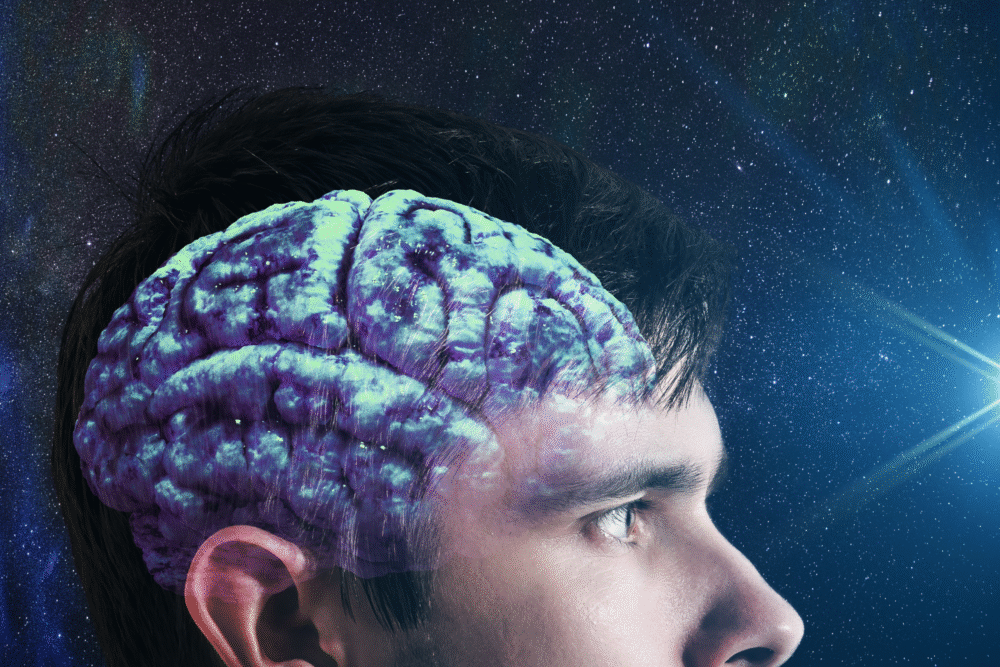Some evidence suggests death might be the beginning—not the end.

You think you’ve wrapped your head around death—until something cracks that certainty wide open. Maybe it’s a dream that felt too real, a story that gives you chills, or a moment that leaves you wondering if someone who’s gone isn’t really gone. It hits you in a quiet second: what if this isn’t the end? What if your mind, your memories, or some core piece of you keeps going in ways science can’t explain yet? The idea might sound like late-night overthinking, but the questions are ancient—and they’re not going away. In fact, they’re getting louder, weirder, and harder to ignore.
As more stories surface and research pokes holes in what we thought we knew, you can’t help but wonder what’s on the other side of that last breath. This isn’t just about spooky stories. It’s about rethinking everything we’ve been taught about life, death, and whatever might come next.
1. Some near-death experiences are eerily consistent across cultures.

It’s wild how people from totally different parts of the world—different beliefs, languages, and religions—describe almost identical near-death experiences, according to the authors at PubMed. A tunnel of light. A sense of floating above the body. A powerful feeling of peace. Some meet deceased loved ones. Others report a life review that feels more real than anything they’ve ever lived. And these aren’t just poetic retellings—doctors and researchers have recorded them again and again. So what’s going on? Are these brain hallucinations firing off in crisis? Or are they glimpses into something beyond the physical? The consistency is hard to brush off.
Sure, the brain under extreme stress can do strange things. But why would it default to such specific, shared imagery? It makes you wonder if there’s more going on than just neurons misfiring. Maybe, just maybe, consciousness has a little more stretch in it than we’ve been led to believe.
2. Quantum consciousness might mean your mind isn’t stuck in your body.

Okay, this one sounds like science fiction—but it’s not. Some physicists and neuroscientists are exploring the idea that consciousness isn’t produced by the brain—it’s just processed by it, as reported by the experts at the National Library of Medicine. Kind of like how your phone doesn’t create the internet, it just taps into it. One theory, from physicist Roger Penrose and anesthesiologist Stuart Hameroff, is called “orchestrated objective reduction.” Fancy title, but the idea is simple: your consciousness could be tied to quantum processes happening inside your brain’s microtubules.
If that’s true, then your awareness might exist on a quantum level—and quantum stuff doesn’t always play by our regular rules of time and space. That means your consciousness wouldn’t necessarily die with your body. It might shift, continue, or integrate into something else entirely. Sounds bizarre? Definitely. But when the smartest minds in science start cracking open these possibilities, you can’t help but wonder what’s really going on behind the curtain.
3. Your brain stays active longer than you think after death.

You’d think your brain shuts off the second your heart stops, but recent research says otherwise, as stated by Dr. Ananya Mandal, MD at the News Medical. In some cases, brain activity—measurable electrical signals—continues for minutes, even hours, after declared death. That raises some unsettling questions. Could awareness still linger for a bit? Could there be a window where you’re sort of… stuck between states? Some patients who’ve been revived report hearing hospital staff pronounce them dead or feeling detached from their body.
Scientists are digging into what this post-mortem activity means, but one thing’s clear: death isn’t always instant. If your consciousness hangs on even briefly, it opens the door to all kinds of possibilities. It doesn’t mean ghosts are real—but it does suggest that the moment of death might not be as final, clean-cut, or silent as we’ve always assumed. You might be more “here” than we thought, even after your body says otherwise.
4. Children sometimes recall past lives with startling accuracy.

This one’s a total head-scratcher. Kids—often as young as three—have shared memories of past lives so vivid and detailed, they’ve freaked out their own parents. We’re talking names, locations, family members, and even causes of death. In some cases, researchers have verified the details—people and events the child couldn’t have possibly known.
Dr. Ian Stevenson from the University of Virginia spent decades documenting thousands of these cases. It’s not about ghosts or spooky stuff—it’s more about memory, identity, and what might carry over from one life to another. Sure, skeptics argue it’s imagination or parental influence. But some of these accounts are just too specific to dismiss that easily. It’s not like these kids are making vague claims. They’re recalling entire life stories—down to things like hidden belongings or family secrets. It doesn’t prove reincarnation, but it makes the idea way harder to write off completely.
5. Some people are clinically dead—then come back changed.

It’s not just the fact that they came back—it’s how they come back. People who’ve been flatlined, revived, and lived to tell about it often report major personality shifts, emotional awakenings, or newfound spiritual beliefs. And it’s not always subtle. Some become more compassionate, less materialistic, even obsessed with helping others. Others suddenly have knowledge or skills they didn’t have before. It’s like something flipped inside them.
Now, that could be a psychological response to trauma. But when hundreds of people across time and cultures experience similar transformations, you have to ask: what did they see? What did they feel? It’s not like they all got together and decided to have the same story. Maybe the brink of death reveals something we can’t grasp while we’re fully alive. Whatever it is, they don’t come back the same—and that in itself is kind of mind-blowing.
6. Some hospice patients describe visits from deceased loved ones before dying.

This one gives people chills—not because it’s spooky, but because it’s oddly comforting. Many hospice nurses and palliative care workers report that patients, often just days or hours from passing, begin seeing people who’ve already died. And they’re not hallucinating in the typical sense. These aren’t terrifying or confusing visions. Patients often describe them as calm, clear, even joyful. They might see a spouse, a parent, or even a long-lost pet.
Sometimes they talk to them. Sometimes they just smile and say something like, “They’re waiting for me.” It’s one of those phenomena that defies easy explanation. The brain shutting down? Possibly. But why such consistent, peaceful encounters? Why do they happen at all, and why are they so similar from person to person? Whatever’s going on, it suggests death might not be as lonely or abrupt as we fear. It might even feel like… going home.
7. Consciousness may be a field we tap into—not something we generate.

This flips the whole brain-as-a-computer model on its head. Some philosophers and scientists believe consciousness might be more like a fundamental field—something that exists all around us, like gravity or magnetism. Your brain wouldn’t make consciousness, it would receive it, kind of like a radio picks up a signal. So when your body dies, the signal doesn’t necessarily stop—it just isn’t being picked up anymore. The implications? Wild. It means you might still be “out there” in some form, even if you’re no longer physically here.
The theory’s called “panpsychism” or “non-local consciousness,” and while it’s definitely fringe, it’s attracting attention from serious thinkers. No, it’s not proof. But it’s a huge shift in how we even define what it means to be conscious. And if this view turns out to have any truth to it, death might not be the end—just the end of your current receiver.
8. Some scientists believe we may live in a simulation—and death might be a reboot.

Okay, this one’s straight out of a sci-fi movie—but it’s been floated by tech billionaires and theoretical physicists alike. The simulation theory suggests that all of existence, including you and me, could be part of a super-advanced digital program. And if that’s true? Death might not be what we think it is. It could be a reboot. A shift to another level. A removal from the simulation altogether.
Of course, there’s no hard evidence for any of this—but people like Elon Musk and Neil deGrasse Tyson have said it’s a real possibility worth exploring. If we are in a simulation, then consciousness might not even be tied to our physical brains at all. It might be stored, transferred, or reuploaded somewhere else. Crazy? Definitely. But in a world where quantum physics already bends reality, you’ve got to wonder how far down the rabbit hole we really go.
9. Out-of-body experiences suggest you might not be anchored to your brain.

Plenty of people have described moments where they felt completely separate from their body—floating above it, watching from the corner of the room, or even traveling to places they couldn’t possibly see. These out-of-body experiences (OBEs) often happen during trauma, deep meditation, or even surgery. Some folks describe details they couldn’t have known unless they were actually present—even if they were unconscious at the time.
Scientists have tried to recreate these sensations in labs using virtual reality and brain stimulation, but they can’t fully explain the depth and realism people report. Are these just tricks of the mind? Maybe. But if your sense of self can drift outside your body even briefly, it raises a bigger question: what are you, really? Are you your body—or are you something that just temporarily lives in one? That’s the unsettling part. It suggests death might not take everything with it.
10. Some patients experience terminal lucidity right before death.

This one’s as fascinating as it is mysterious. Terminal lucidity is when someone who’s been completely unresponsive—or even suffering from severe dementia—suddenly becomes alert, coherent, and completely themselves just hours or days before dying. They recognize loved ones, hold real conversations, and sometimes even reflect on life with clarity they hadn’t shown in years. No one really knows why this happens. It defies medical expectations. The brain doesn’t magically heal overnight. Yet this phenomenon is well-documented by caregivers and family members around the world.
Could it be the soul or consciousness breaking through as the body shuts down? A final burst of mental clarity before a transition? Whatever it is, it leaves a lasting impression on those who witness it. It hints at something deeper—like the conscious self isn’t entirely bound to the brain’s current condition. Maybe something else takes over when the body’s done trying.
11. Consciousness may be tied to dimensions we haven’t discovered yet.

We experience life in three dimensions—with time as the fourth—but physicists believe there could be many more. String theory, for example, proposes up to 11 dimensions. If that’s the case, then our understanding of death could be woefully limited by our physical perception. Consciousness might not vanish—it could just shift into a dimension we don’t know how to observe yet. That sounds like science fiction, but it’s actually science speculation grounded in real theoretical physics. And if dimensions beyond our own exist, then what we interpret as “the end” might be something else entirely—a passage, not a wall.
It’s hard to wrap your head around, sure. But once you realize how much of the universe we don’t understand, the idea that consciousness continues on a plane we can’t detect becomes a lot more plausible. It doesn’t answer all the questions, but it opens up some mind-blowing possibilities.
